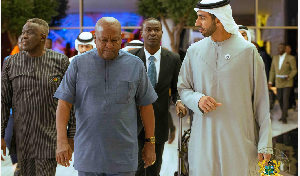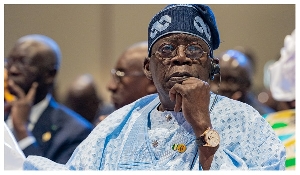Opinions of Monday, 29 April 2024
Columnist: Martin Alohan
A call for transparency and engagement in Ghana's electoral process
Dear Esteemed Electoral Commissioner,
I trust this letter finds you well and in high spirits. I applaud your determined efforts in overseeing Ghana's electoral system and the imminent general elections. Undoubtedly, your role is both desired and thought-provoking, overloaded with immense pressure and responsibility.
However, you have demonstrated your capability to handle these duties with aplomb.
Yet, amidst the accolades, there are murmurs questioning the impartiality of the Electoral Commission (EC). The most recent critique came from none other than former President John Dramani Mahama during his interview at the esteemed London School of Economics and Political Science. He raised concerns about the perceived bias in EC appointments, particularly citing the alleged favouritism towards the ruling party.
Your swift response via a press release to rebut these claims is noted. However, let's delve deeper into the substance of the matter. In your rebuttal, you invoked Article 43(2) of the Constitution, which stipulates the presidential appointment of EC members. It's worth noting that Mr. Mahama himself exercised this authority to appoint the former EC boss, Charlotte Osei, under whose tenure he faced electoral defeat.
Does this not lend credence to Mr. Mahama's assertion regarding partisan appointments within the EC? The lingering question remains: are these accusations grounded in truth? Furthermore, your acknowledgment of innovations aimed at ensuring credible elections is appreciated. Yet, the true litmus test lies in the verdict of the Ghanaian electorate. Have they truly experienced elections characterized by transparency, fairness, and freedom?
Your mention of the recruitment process for returning and deputy officers raises pertinent concerns. Have thorough background checks been conducted to ascertain their political neutrality? Transparency in this regard is imperative to dispel any doubts regarding the integrity of the electoral process.
Beyond internal committees, what additional measures have been implemented to guarantee the independence and impartiality of EC personnel?
Moreover, I urge the EC to embark on a comprehensive educational campaign across Ghana. The populace must be actively engaged and informed about electoral procedures, fostering a sense of ownership and trust in the electoral process.
In conclusion, while refuting allegations is necessary, prioritising transparency, engagement, and education are vital. Let us seize this opportunity to strengthen democracy in Ghana by ensuring an electoral process that is not only free from bias but also inclusive and empowering for all citizens.
News

Ghanaian man in Denmark reportedly commits suicide after DNA test reveals 4 children are not his
Sports

John Paintsil’s defamation case involving Countryman Songo and three others resumes on February 17
Entertainment









